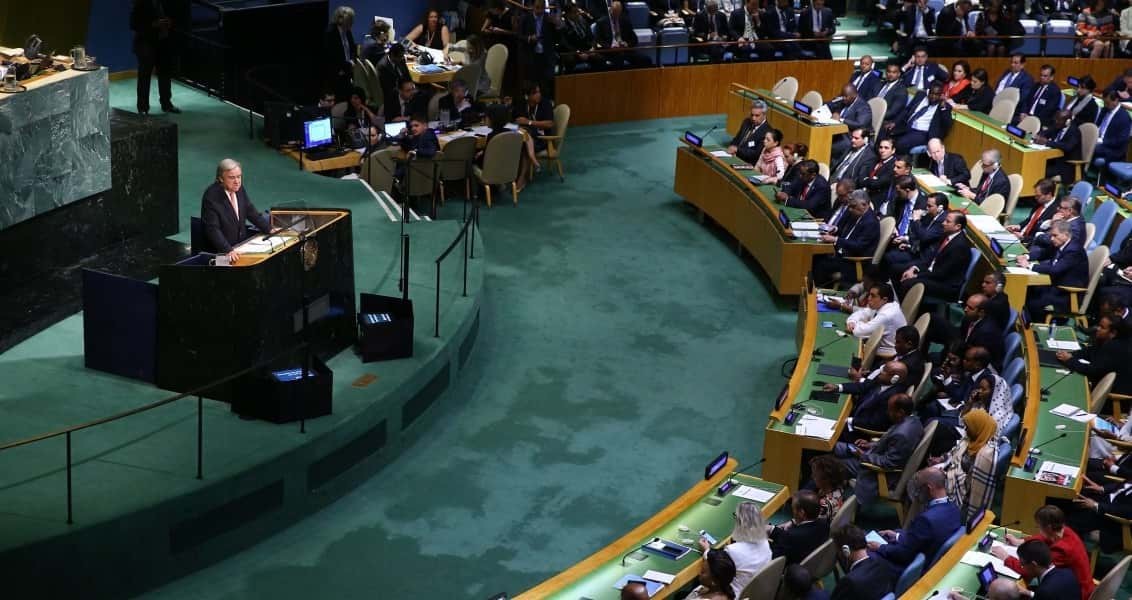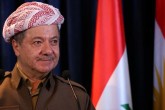U.N. General Assembly meetings are over. As mentioned in previous articles in this column, the assembly gathered one more time to discuss significant issues pertaining to international security and relations. It became much more apparent that there is a need for cooperation among countries of that assembly if they want to make the U.N. more relevant to the international system today. As conflicts rise in different parts of the world and as we continue to witness different forms of humanitarian tragedies, the standing and reliability of international organizations are being questioned. In the last three decades, in each and every humanitarian crisis we face similar impasses, similar deadlocks about this organization and similar debates about potential changes to this body. However, following the end of these crises in most instances these insistent calls for reform or restructuring of the U.N. is subsided.
In the last few years due to the increasing number of conflicts and the increasing intensity of violence against civilians in these crises, there is a more urgent need to take some meaningful states to push for reform of the U.N. system so that the organization can be more relevant in handling crises. Turkey is among the countries that call the world to be more attentive to humanitarian crises and establish a reformed U.N. mechanism to resolve these crises collectively. During his meetings and statements at the U.N. General Assembly, President Recep Tayyip Erdoğan frequently mentioned several issues regarding the current state of humanitarian crises and need for a more effective global enterprise to deal with them.
The Syrian conflict, which became one of the most chronic problems of the world, necessitates a very serious collective endeavor from the international community. There is both a danger of further attacks to the civilian targets by Bashar Assad’s regime and its proxies on the ground and lack of support for the countries that host the Syrian refugees along the borders of Syria. There is also an absence of sophisticated plans and preparedness for the rehabilitation of Syrian refugees and long-term relocation of these refugees in re-constructed living quarters in Syria. The short-term actions of humanitarian relief agencies around the world failed to address these longer-term problems. In the last six years, despite calls from countries in the region, including Turkey, the U.N. system failed to respond to these long-term challenges. In his U.N. General Assembly address, Erdoğan one more time underlined the need to work together to resolve this humanitarian crisis. He particularly addressed the lack of action and failure of commitments from the EU to handle the refugee crises in the country. He mentioned that so far Turkey, together with its governmental agencies and civil society groups, has spent $30 billion, whereas the contributions from the international community for these relief efforts have been $560 million. In the absence of burden sharing, it will be hard to deal with the longer-term effects of this crisis to the Syrians, to the region and to the international community.
As expected, the Rohingya crisis was the second humanitarian disaster that Turkey brought to the agenda at the U.N. General Assembly. Erdoğan mentioned this crisis, the contribution of Turkey to the resolution of the crises and the need for the international community to take some steps in this crisis. Just like the Syrian crisis, the current state of the Rohingya crisis also necessitates several measures be taken collectively by the international community. Erdoğan said the diplomatic and humanitarian efforts of the Turkish government with the lack of international action and the failure of the U.N. system to deal with the crisis will increase the intensity and gravity of the conflict.
In the absence of a U.N.-led effort to remedy these humanitarian problems, skepticism of the effectiveness of this organization will increase. In the longer run, it can pave the way for more serious humanitarian crises and embolden the regimes that persecute its citizens and residents.
[Daily Sabah, September 23, 2017]
In this article
- Foreign Policy
- Opinion
- 2017
- Bashar Al Assad
- Daily Sabah
- European Union (EU)
- Humanitarian Crisis
- Middle East
- Recep Tayyip Erdoğan
- Rohingya Muslims
- Syria
- Syrian Civil War
- Syrian Conflict
- Syrian Crisis
- Syrian Refugees
- The President of the Republic of Türkiye
- Turkish President
- U.N.
- U.N. Reform
- United Nations (UN)
- United Nations General Assembly (UNGA)



